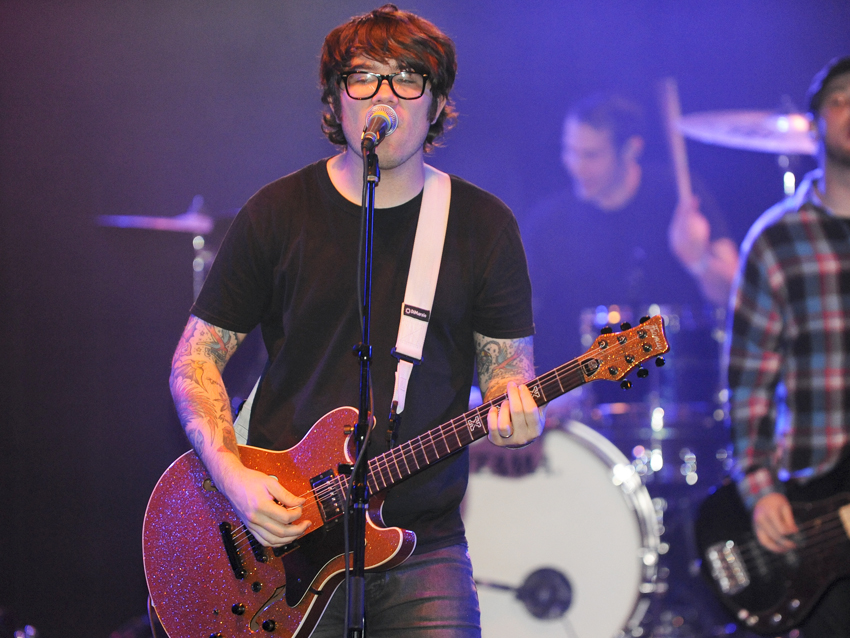
Hawthorne Heights' JT Woodruff picks 10 essential guitar albums
JT Woodruff has a dirty little secret. The frontman for post-hardcore darlings Hawthorne Heights is a massive fan of hair metal, with a particular fondness for bands like Poison and Dokken. "It's also surprising when you consider the role of the virtuoso guitarist in that genre," he says, "which is very unlike what my band does."
Despite his admiration for shred specialists, Woodruff says that he's never been tempted to follow suit with sweep arpeggios and feats of hammer-on wizardry. " Maybe it’s because I’ve always been able to sing, so I never focused on writing leads and practicing that style of playing," he theorizes. "But I love people who have that kind of ability. That kind of shredding is in my blood, even if I don’t do it myself.”
In choosing his 10 Essential Guitar Albums (OK, one is a song), Woodruff says that he was drawn to the specific tones on various recordings, pointing to a selection that actually didn't make the final cut: Norman Greenbaum's 1969 hit Spirit In The Sky. "What a cool, unique tone!" he enthuses. "Just the way that guitar sounds, with the distortion and the echo – it pulls you right in."
Describing his own guitar technique, Woodruff asserts that he's a classic power-chord man, leaning heavily on root notes with the occasional melody line. "I basically use the guitar as a vehicle for writing lyrics and melodies," he explains. "All of the interesting guitar stuff on our records comes from Micah [Carli] or Mark [McMillon]. You don’t have to be a virtuoso to write songs, though. Nobody writes a song because they just came up with lead guitar solo – you have to start with chords and work from there."
On the following pages, Woodruff runs down his choices for 10 Essential Guitar Albums - well, nine, actually, with one song selection.
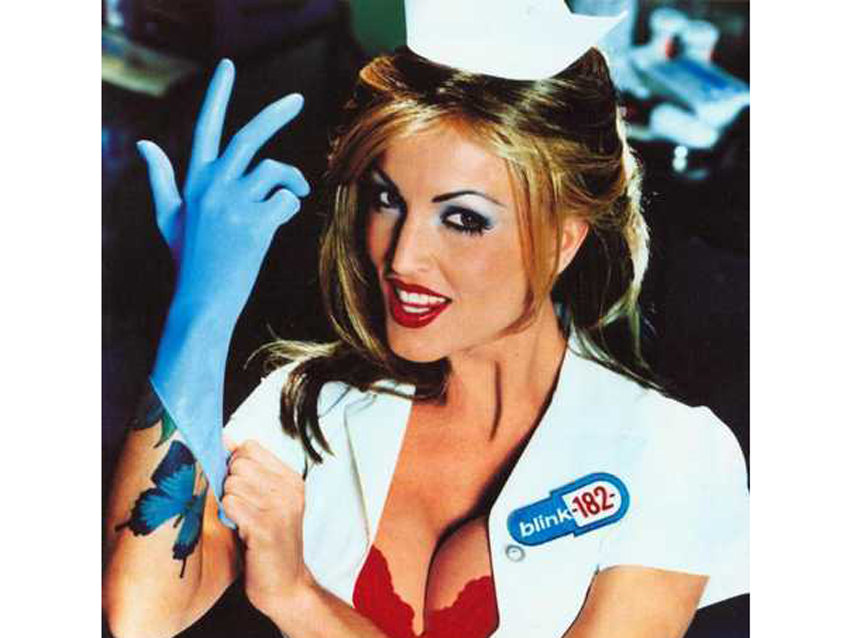
Bink-182 - Enema Of The State (1999)
“To me, this is one of the best-sounding guitar records ever. A couple of my bands tried to capture that sound, which you get with a Mesa/Boogie Dual Rectifier and a JCM 800, both cranked. All he [guitarist Tom DeLonge] did was click off the Rectifier, and he had the 800 doing the clean sound. He didn’t change to the clean signal, though – an important point.
“I saw him do that live, and it was a big moment for me. You know, you don’t have nice gear when you’re starting out, so when you can see somebody in a big band work his sound without all kinds of racks of equipment, it makes an impression.
“I wouldn’t say that the record is great as far as technical guitar playing, but the band isn’t about that. They’re about great songs, fun songs, pop songs. Actually, I do think that Tom is a good guitarist in the pop-punk realm. He can sound like he’s not just one guitar player, which is cool.”
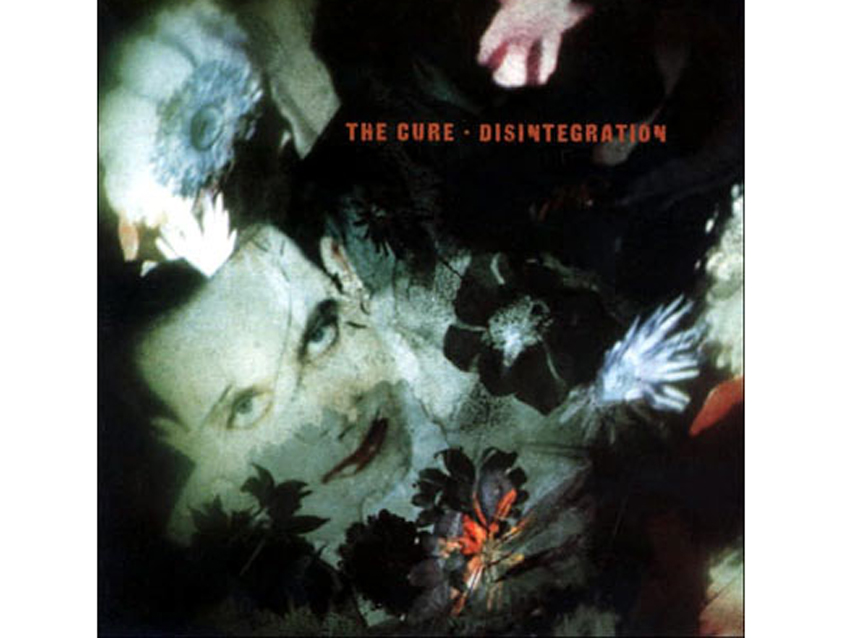
The Cure - Disintegration (1989)
“I love how shimmery the tones are. It’s all very warbly, and that fits in with Robert Smith’s vocals. The guitar parts are simple but extremely interesting. I never thought that guitarists had to do all kinds of hard, complicated shit to do something meaningful.
“My sister introduced me to this record when alternative music broke – this was not the same time when mainstream alternative hit. I fell in love with The Cure instantly, and they’re still one of my favorite bands.”
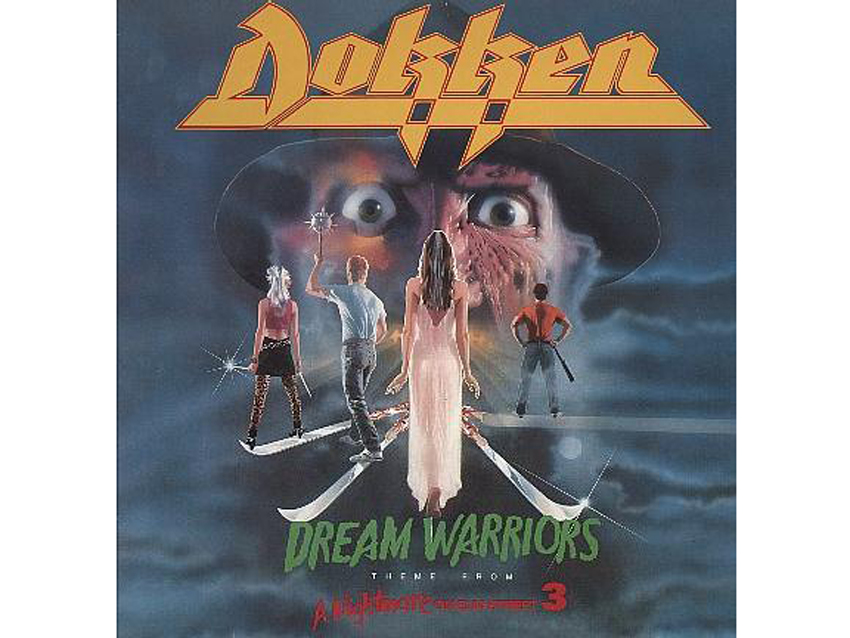
Dokken - Dream Warriors (song) (1986)
“I love Dokken, and I’ve always loved horror movies, so here’s a dream combination. They did this song from one of the Nightmare On Elm Street Movies, which was pretty good, as I recall.
“The song kicks ass, so that’s why I’m choosing it. When I got the album that it was on [Under Lock And Key], I was a little let down, though. I was a fan of hair metal, and what I liked about Dokken was that they were more of a shred band – George Lynch was a very serious guitar technician. The album wasn’t so shreddy, so I was like, 'OK... '
“Lynch changed my view of the guitar. When he went off, when he went crazy, he took it in all directions. It sounded like 1,000 wizards playing the guitar at once – and they were all awesome.”
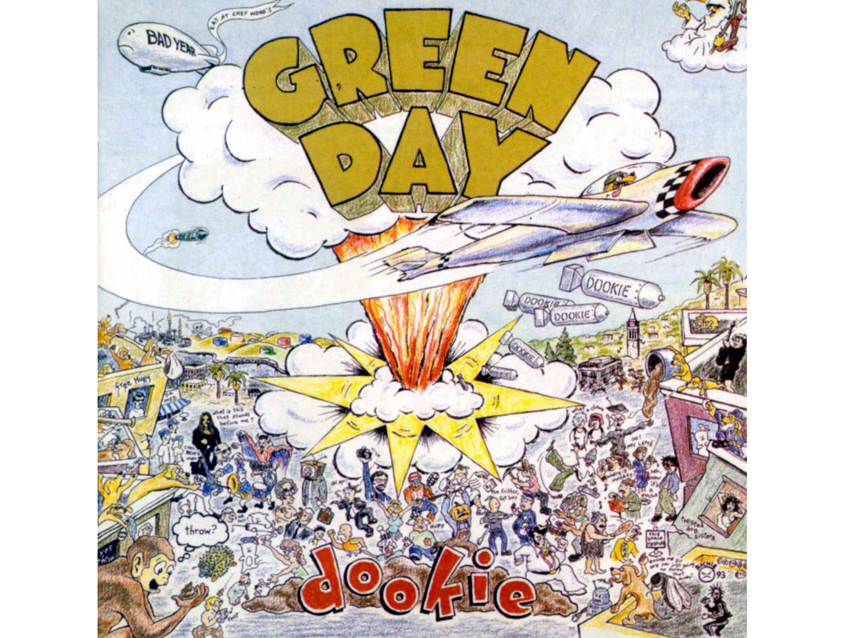
Green Day - Dookie (1994)
“Growing up in such a small area, I wasn't exposed to a lot of punk rock. This album was the first time that I’d heard chord changes being made so quickly, but they still made the vocals move. The aggression came through in how fast everything was played and how stiff the palm-muting was. Instead of alternate picking, the idea was to play these songs as hard as possible.
“The band is very pop, too, which becomes more interesting when you listen to the record later on. But when I heard it back in the day, all I could think was, ‘This is badass!’ The band sounded like they didn’t care about anything but playing a great rock show. I appreciated that then, and I still do.”
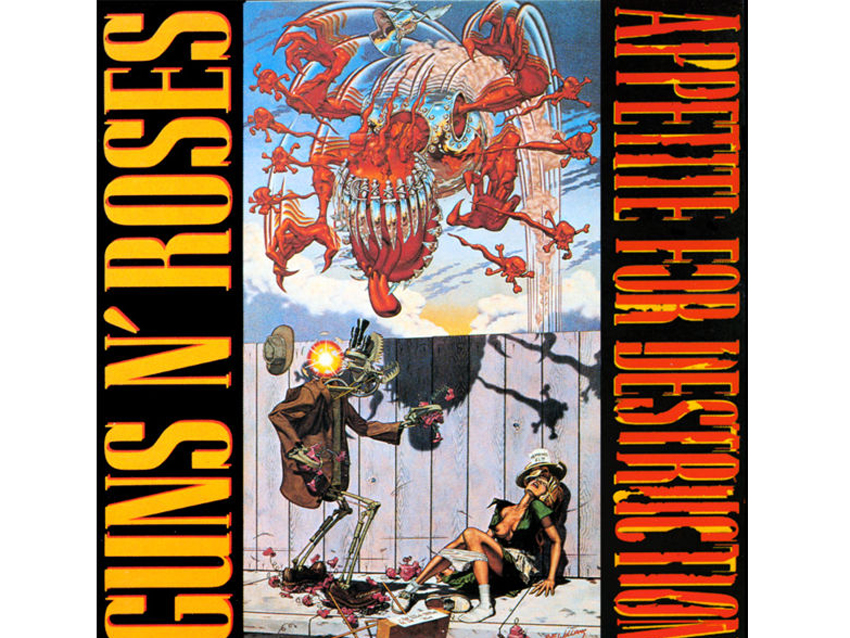
Guns N' Roses - Appetite For Destruction (1987)
“I don’t remember how old I was when this came out, but my mom said to somebody at the store in the military base where we were living, ‘What are all the young people who like rock music buying?’ And so she bought me this record, along with Poison’s Open Up And Say… Ahh! That sort of started my love for this kind of music.
“Slash is one of my favorite guitar players. He shreds pretty massively, but everything he does is so musical and melodic; it doesn’t sound like exercises and scales to me. I’ve always been attracted to melodic guitarists, and what I love about Slash is that he can get very bold and aggressive, but it’s never too wanky or show-offy. Plus, he’s totally rooted in the blues, which I think is cool.”
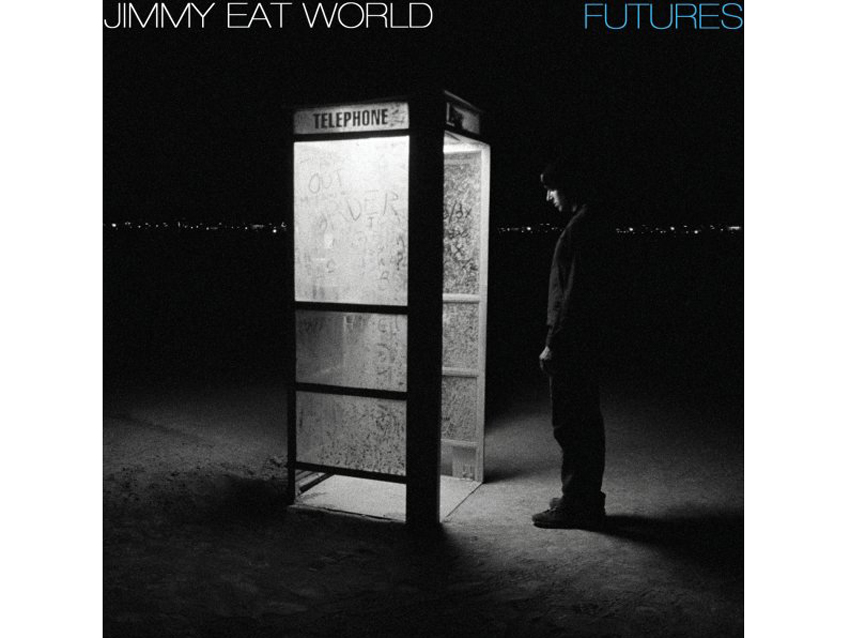
Jimmy Eat World - Futures (2004)
“The rhythms on this record are pretty underrated. There’s not a lot of technical stuff going on – most of it is power chords and easy melody lines that sit well with the vocals – but the rhythm guitar parts on this album have always blown me away.
“Every time I try to write things like this, I get messed up – I can’t sing and play at the same time beyond what comes naturally to me. So I have great respect for people who can marry great guitar rhythms and fantastic melodies and who can play it all together.”
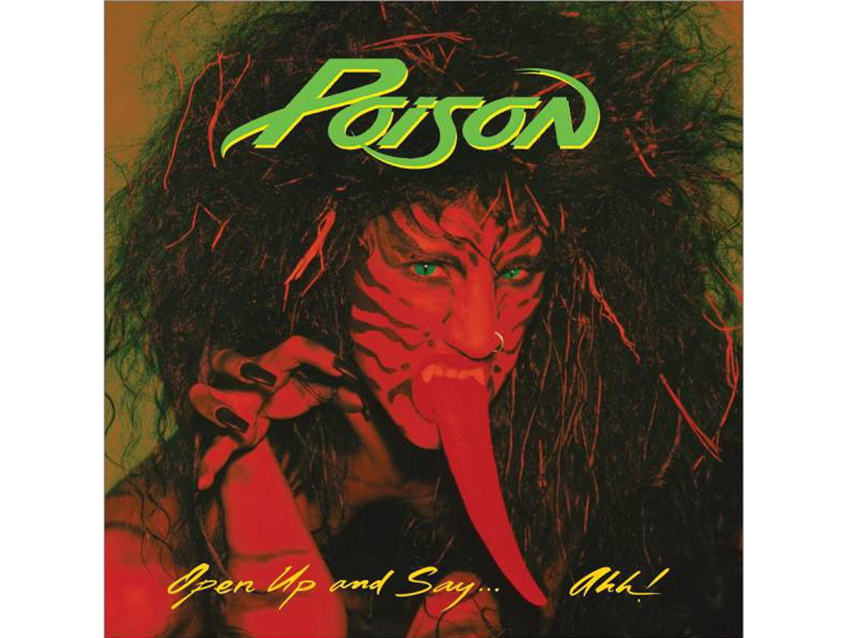
Poison - Open Up And Say... Ahh! (1988)
“Not many people give it up for C.C. DeVille, but I love him. His playing is so excessive and, at times, so borderline comical, but that’s what’s so great about him – just like his hair, it was ridiculous, but I think he knew it. That was the whole point.
“Every Rose Has Its Thorn is the first song from that era where I noticed an acoustic guitar. To me, for a band that was supposed to be tough – although, listening to it now, I wouldn’t classify them as ‘tough,’ but back then they were metal – but the use of the acoustic guitar really stood out and gave the song a lightness that I really, really loved.
“C.C.’s playing has a random quality that works for me. He’ll start playing a lick in the middle of a song for no reason at all. Not a lot of guys would do that; they’d wait for the designated solo break. C.C. seemed to do whatever he wanted. And he played a skull-and-crossbones guitar in the music videos – I thought that was pretty badass back then.”
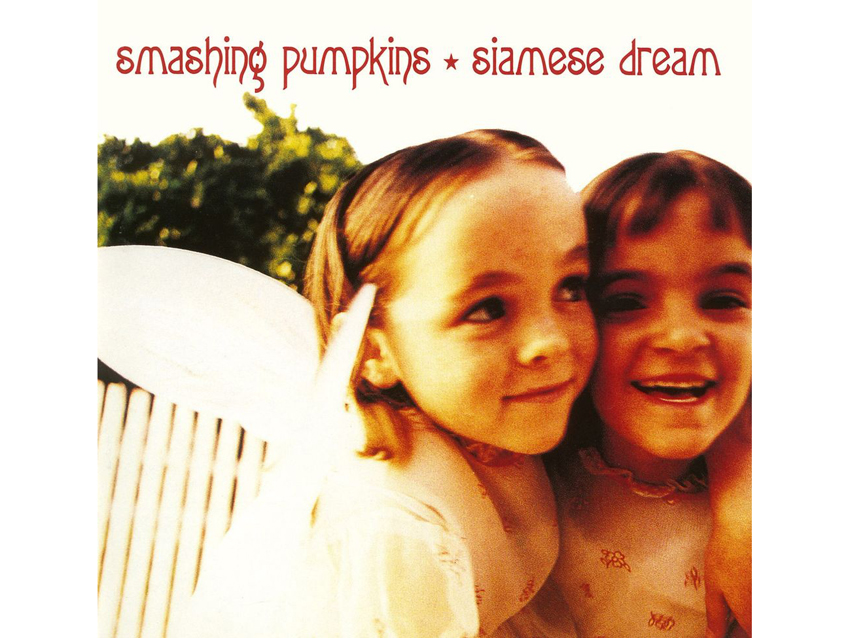
The Smashing Pumpkins - Siamese Dream (1993)
“The sounds and the solos are crazy and so noisy, but everything still fits in the songs. If I tried to do what they did, I would sound like I was totally messing up, but Billy Corgan just friggin’ rules. He’s so masterful as a guitarist and a writer, but it really all comes down to his ideas – he’s following a vision.
“I think he kind of introduced us all to the Big Muff when this record came out. There’s some sweet stuff on the record, but the majority of it was angry, and that really worked for the ‘I-hate-my-parents’ vibe a lot of us had at the time.”
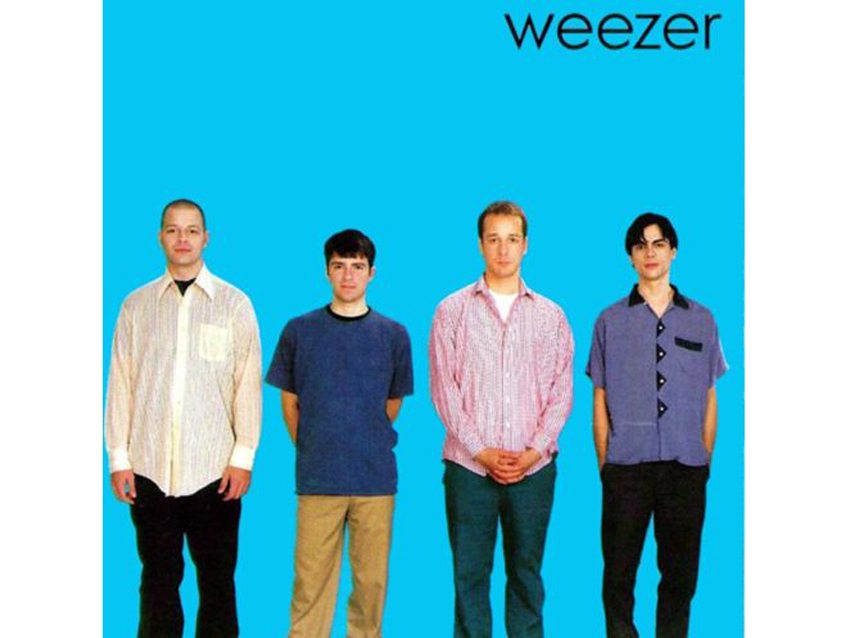
Weezer - Weezer (1994)
“I started playing guitar about two years after it came out, but this was one of the albums that made me go, ‘This is super cool, but it's also something that is attainable.’
“One of my friends could play all of the songs on the record, which really impressed me. When you see somebody do something like that in front of you, it adds to that feeling of, ‘Yes, I could do that, too.’
“But the real reason why I love the album is because of how fuzzy the guitar sounds. I don’t know if that was a Weezer thing or a Ric Ocasek thing because of his production; it sounds a bit like a Cars record in places, so it’s hard to tell. At first I didn’t notice all of this when the videos were on MTV, but a few years later I realized how interesting the guitar tones were. There’s some nice soloing, too – very melodic but shredding.”
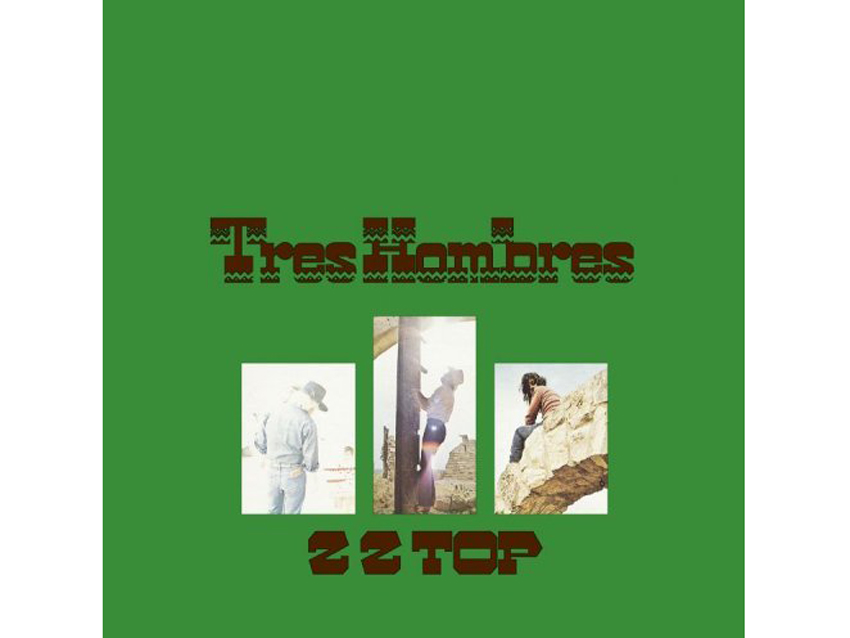
ZZ Top - Tres Hombres (1973)
“My parents listened to this record a lot while I was growing up. I wasn’t into it at the time because I was like, ‘Ah, that’s just old people’s music.’ Which it isn’t, of course – it’s totally cool rock music. But I was listening to Poison and stuff like that, so anything that my parents liked wasn’t going to do it for me.
“But then I kind of stole the record a while later, and that’s when I got what was so great about the band. Billy Gibbons’ use of pinch harmonics is absolutely crazy. The way he lets loose with them – they never sound out of place. A lot of metal bands will crank out the pinch harmonics, but when Billy uses that technique, he does it in a very smart way. There’s a lot of attitude in his touch.
“I’ve never been a huge blues guy, but listening to ZZ Top probably opened me up to the genre a bit. I’m not into jamming; when bands go on for too long, I lose interest. ZZ Top and George Thorogood are two blues acts that know the value of a three-minute song.”

Joe is a freelance journalist who has, over the past few decades, interviewed hundreds of guitarists for Guitar World, Guitar Player, MusicRadar and Classic Rock. He is also a former editor of Guitar World, contributing writer for Guitar Aficionado and VP of A&R for Island Records. He’s an enthusiastic guitarist, but he’s nowhere near the likes of the people he interviews. Surprisingly, his skills are more suited to the drums. If you need a drummer for your Beatles tribute band, look him up.
"Reggae is more freeform than the blues. But more important, reggae is for everyone": Bob Marley and the Wailers' Catch a Fire, track-by-track
“Part of a beautiful American tradition”: A music theory expert explains the country roots of Beyoncé’s Texas Hold ‘Em, and why it also owes a debt to the blues
"Reggae is more freeform than the blues. But more important, reggae is for everyone": Bob Marley and the Wailers' Catch a Fire, track-by-track
“Part of a beautiful American tradition”: A music theory expert explains the country roots of Beyoncé’s Texas Hold ‘Em, and why it also owes a debt to the blues









